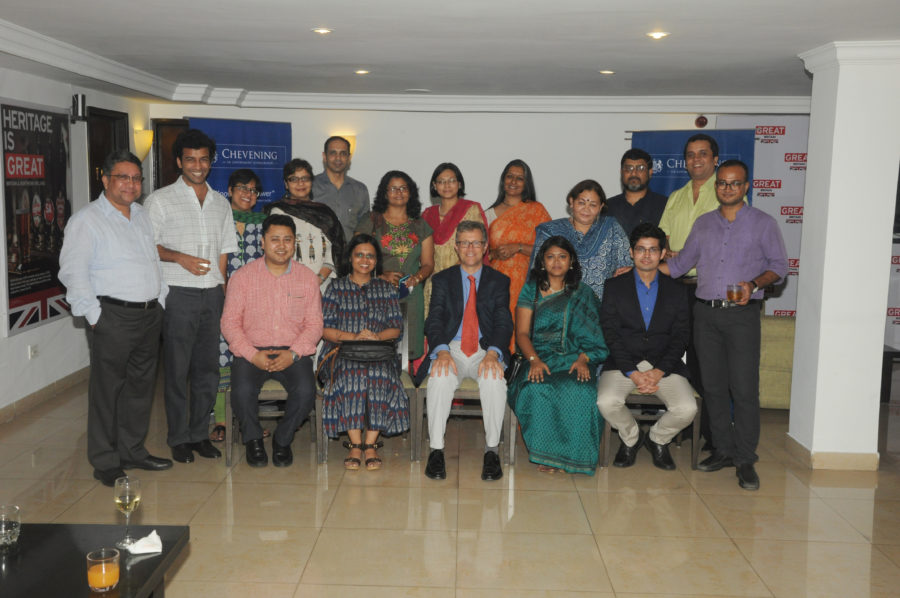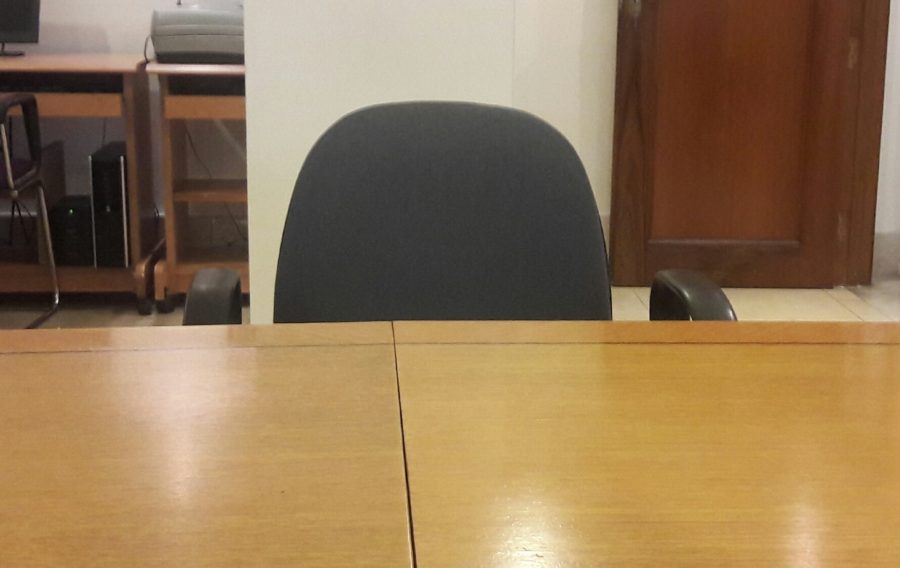13th April 2017 Kolkata, India
Interviews for an education

 There are many ways of gaining an education.
There are many ways of gaining an education.
Apart from the usual places like school, college and university, I’m a fan of travel and seeing new places (which partly explains why I became a diplomat). Meeting people who have very different lives can teach you a lot. And for a lucky few, there is all three: traveling to another country, meeting different people from all over the world and studying full time!
That was the opportunity for which I was conducting interviews over the best part of two days last week. I was interviewing candidates for Chevening Scholarships, the British government’s flagship award scheme aimed at future leaders, in this case scholarships that cover the full cost of a one-year master’s degrees at a British university.
The interviews were the last of four stages, and I was interviewing with a colleague from Delhi, and a former Chevening scholar from Kolkata. The interviews were part of a series taking place across India, and in over 160 other countries around the world – although the programme in India is the largest.
Like many of my Foreign and Commonwealth Office colleagues, I regularly take part in interviews either as a candidate or as a member of an interview panel. This is because most of our jobs are filled by interview. But there’s a very different dynamic when you are interviewing fellow members of Her Britannic Majesty’s Diplomatic Service, to interviewing foreign nationals for a scholarship.
The experience was more educational for me than I had anticipated.
Variety
Although the format and questions at the interview are standardised, we had very different answers from the candidates. I was struck by how their demeanour when they entered the interview room, and how they introduced themselves, didn’t match with how well they performed in the interview itself.
We had candidates from several states of the East and North East of India – not just the Kolkata metro. They were an ethnically diverse group from very different backgrounds. From what I recall of their application forms, we had candidates whose school education would have been conducted in at least five different languages.
To compound the challenge for us, the courses they wanted to study were also varied. There was also a wide range of reasons for why they wanted to study in Britain, their aspirations for the future and what they would do when they returned to India after their course.
Competition
As I set out in my last blog, India has the largest number of people under the age of 25. The competition to get places at the best educational institutions in India must be intense. The signs are everywhere: from the queues outside schools on the days when they hold entry tests, to the adverts for every sort of educational course on the streets and billboards of the city.
All of us on the panel were conscious that the opportunity for the candidates was potentially life changing. We only saw the top candidates who had been selected after their applications had been through three different screenings. I’m not sure whether this registered with any of them when they were told at the start of the interview. They were understandably focused on performing well at the interview.
All the candidates at one point or another revealed their nerves, usually at the start of the interview. I and my fellow interviewers did our bit to put them at their ease. The nerves didn’t matter – they all gave a good account of themselves. They all showed a thirst for more education and to learn and experience new things that would develop them, and give them greater opportunities in the future.
Interview panel
After we completed the interviews, we discussed our experience as panellists. We agreed how we wanted all the candidates to do well at the interviews. We concluded that this was because what was on offer could be so transformative – as my colleague who had studied in Britain knew very well.
We were struck by how much knowledge our candidates displayed, and the passion they expressed when talking about their subjects and their hopes for the future. I wondered if this reflected my age – the candidates were all much younger than me, although there was quite an age range (the conditions of the scholarship are that candidates should have at least two years’ work experience).
As I look back on the two days, I now see that I was hearing the compressed stories of the lives of the young people I met. This was not the usual interaction foreign diplomats have, but an intense encounter with the dreams of others. It was a joy to hear them.
It was also humbling experience. I’m not sure I’ve ever shown such knowledge in an interview, or expressed such passion. If there is one thing I want to harness from them, it is the power of their dreams.
 Applications for 2018-19 Chevening Scholarships will open in August 2017.
Applications for 2018-19 Chevening Scholarships will open in August 2017.
In India, the Chevening scholarship includes the tuition fee, living expenses and return flights to the UK.
Networking events, volunteering opportunities, talks and trips across the UK will be part of the engagement programme.
The scholars will be joining over 46,000 other Chevening alumni who together form an influential and highly regarded global network. The Chevening network in India has 2300 alumni.
Certainly to know other countries and other cultures should be really very exciting, in fact is my dream too.